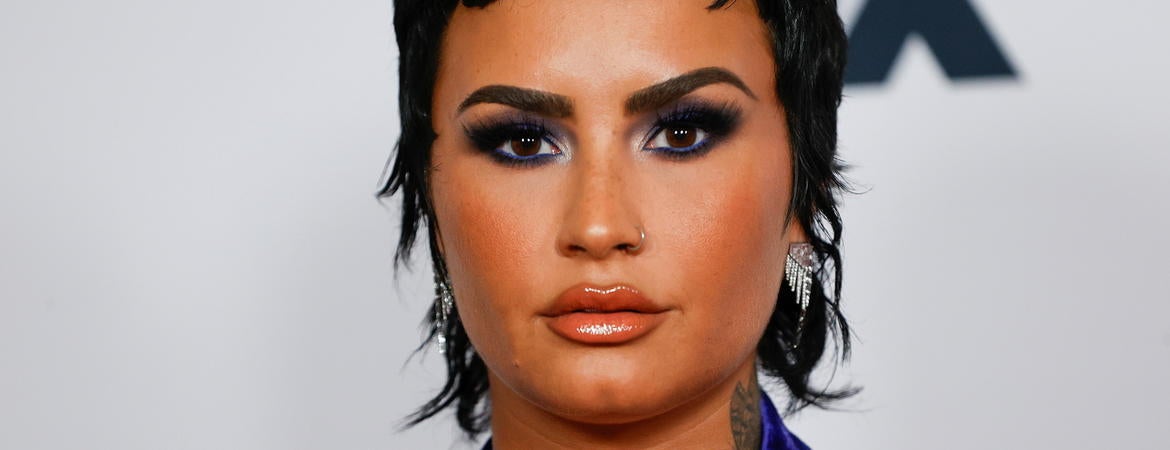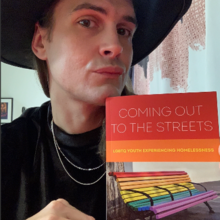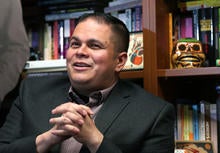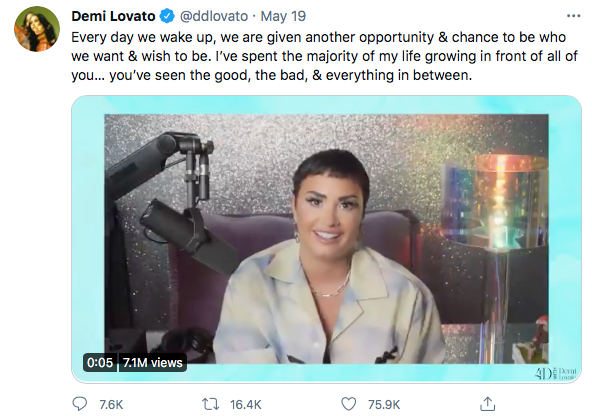
A few weeks ago, singer Demi Lovato made a Twitter announcement, expressing their newfound gender identity as nonbinary.
Lovato expressed that over the past year and a half, they have been doing much healing and reflective work. And although they highlight in the Twitter announcement that they are not claiming to be a spokesperson or an expert on the topic, their celebrity megaphone has a significant effect, several UC Riverside experts say. A public announcement coming from a celebrity of their stature carries some weight, and can contribute to larger conversations within society and among families, regarding LGBTQ+ issues.
“Through this work I’ve had the revelation that I identify as nonbinary. With that said, I’ll officially be changing my pronouns to they, them,” Lovato said during the one-minute and 28 second announcement on May 19, 2021. “I feel that this represents the fluidity I feel in my gender expression and allows me to feel the most authentic and true to the person I both know I am and still I’m discovering.”
What does ‘nonbinary’ mean?
Jennifer Doyle, professor of English
“Nonbinary is a big category. A binary model of gender is too narrow; (nonbinary) opens up the idea that gender is far more diverse, nuanced; gender is far more complex and mobile. The terms ‘male’ and ‘female’ are just not enough. Gender binary has no basis in biology; reproductive biology is simply not a binary structure. Our physiologies are nonbinary, but we live in a world that is radically binary. Take sports as an example. Social structure has categorized gender; you are either one or the other. When I think at the personal, family level. When I think of being a little girl and my adolescence, getting disciplined for what ‘you can and can’t be,’ then thinking that kids today can have a greater range and understanding of who they are, is wonderful. When a person identifies as nonbinary, it’s important to listen. It’s important to respect that and recognize them for who they are.”
Why is identifying as nonbinary important to people? Do gender pronouns put a person in a “box,” i.e., only dress a certain way; limit people to certain types of work, sports, etc.?
Brandon Andrew Robinson, assistant professor of gender and sexuality studies
“Identifying as nonbinary can be important for a variety of reasons and can vary from person to person. In general, though, identifying as nonbinary is often about people challenging the Eurocentric gender binary that categorizes people as only man or woman.
We often only use the pronouns ‘she’ and ‘he,’ upholding the view that only two genders exist. Other pronouns such as they/them can work to disrupt the gender binary and the cisnormative view that there are only two genders. This binary categorization erases the possibilities for other genders and gender identities. Nonbinary is an acknowledgement of this gender expansiveness — a gender expansiveness that has always existed and that has often been disciplined and erased through processes of settler colonialism, imperialism, white supremacy, cisnormativity, and heteronormativity. Gender pronouns are one mechanism of maintaining the gender binary.”
While having a celebrity publicly share their story is a step in the right direction, is their status a shield? If a person has no wealth, no power, no celebrity status, could that person be this open about their gender identity or gender preference?
Richard T. Rodríguez, associate professor of media and cultural studies
“Lovato certainly has a ‘star-power’ from which to draw a kind of protection unavailable to those without the advantage of social and economic privileges.
But I think the ability for someone of their stature to speak out on non-binary issues includes a possible reverberating effect that extends beyond the realm of celebrity to impact if not shift popular discourse on gender and sexuality. Academics in particular are quick to discount political statements and platforms issued by celebrities, but it's important that we consider how these statements and platforms often stand as the initial, if not only, options available to illustrate for everyday people how one might exist against the grain.”
What does this mean from the popular culture perspective?
Richard T. Rodríguez
“Back in the 1990s, Saturday Night Live introduced a character, Pat, an androgynous character with a vague name who left people always trying to pin down if Pat was a man or a woman. It was a terrible figure, a terrible way to present gender non-confirming people. In fact, before the term nonbinary came along, nonbinary people were often called ‘Pat.’ But Demi Lovato opens up a different portal for conversation about nonbinary. On the ground, meaning in our everyday lives, people aren’t often exposed to these kinds of conversations. Lovato is allowing people to understand what it means to be nonbinary.”
Why is it important for artists such as Lovato to publicly speak out about this?
Brandon Andrew Robinson
“Artists coming out or speaking out can draw more attention and education to expansive forms of gender and sexuality that challenge heteronormativity and cisnormativity. One can imagine there being spikes in Google searches about what nonbinary means when a celebrity speaks out. (But) representation is often a double-edged sword, in that, there is often a backlash against people coming out, speaking out, and being represented. For instance, one can think of the so-called “transgender tipping point” where Laverne Cox and a few other trans celebrities began speaking out and getting famous but also the immediate and still ongoing backlash of politicians passing “bathroom bills” and other anti-trans pieces of legislation.”
Jennifer Doyle
“Having a celebrity such as Demi Lovato come out as nonbinary makes more room in the world for people, for these conversations to happen.
They coming out as nonbinary is special, particularly at a time when you have the United States legislature prohibiting transgender youth from participating in women’s sports at the high school and college levels.
These bills impact transgender people, nonbinary people. Those laws are built on sight science, but there is no science behind what they are saying. There’s a lot of fearmongering, phobia. That political movement is harming a lot of people.”
How do we educate our family, friends, neighbors on the importance of gender, sexuality, identity?
Brandon Andrew Robinson
“We need to make gender and sexuality education an important practice starting at a young age and teach people that gender and sexuality education is part of fully understanding the human experience. We also need organizations and educators to meet family, friends, and neighbors where they are at. As I write in my book, we also need a “queer and trans support complex” to nurture marginalized queer, trans, and nonbinary youth. But ultimately, we would need to radically reimagine society that is not heteronormative and cisnormative, then we need to continue the work of creating this world.”







